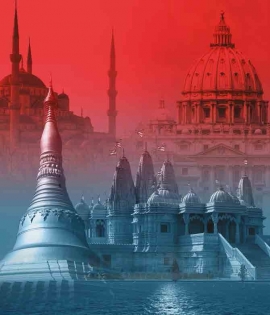"The worst situation concerns North Korea. All we know is that no religious group can exercise their faith," said Alessandro Monteduro, Director of ACS-Italy, in the presentation held in Rome.
Dr. Monteduro said the report is "an instrument to restore hope to the persecuted". He notes that three quarters of the people who are persecuted or discriminated against because of their religion are Christians. Christianity is, in the twenty-first century, the religion that suffers most: more than 334 million Christians live in countries where there is some form of persecution and another 60 million live in countries where they are discriminated against.
Moreover, with the exception of some specific cases, such as Egypt where the legal status is improving and persecution against Christians and episodes of violence decreasing, the violence against Christians in general is on the rise around the world.
At the presentation made in Madrid, Archbishop Jean Abdo Arbach, Greek-Catholic Archbishop of Homs in battered Syria, said that in that city alone "there were 420 Christian martyrs."
The risks to religious freedom, however, should not be underestimated even in the West and in democratic countries. The Italian Constitutional Judge Giuliano Amato commented: "At the root of fundamentalism there is the extreme secularization that aims to eradicate religion, and that generates a crisis of identity. Compromising religion creates a distortion of religious feeling. There can also be trouble with the French laïcité, because it can encourage a fundamentalist backlash."
https://www.infoans.org/en/component/k2/item/2163#sigProIda01b05a21a



